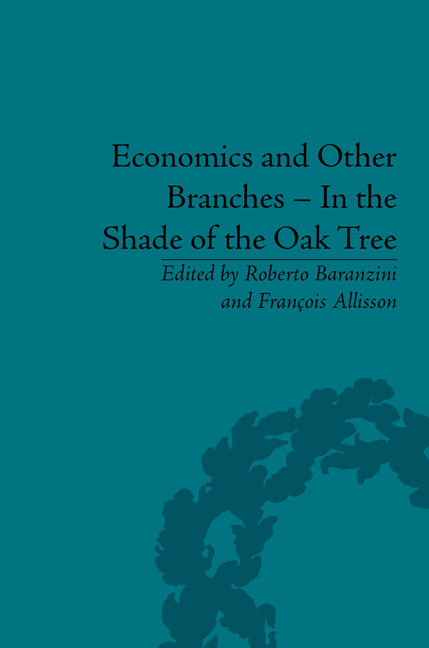Book contents
- Frontmatter
- CONTENTS
- List of Contributors
- List of Figures and Tables
- Introduction
- Pascal Bridel's Bibliography (up to 2013)
- Part I Léon Walras's Economic Thought
- Part II The Spreading of Thought
- Léon Walras's Reception
- 5 Walras in the Age of Marshall: An Analysis of English-Language Journals, 1890–1939
- 6 The English Translation of Léon Walras's Études D'économie Sociale
- The Lausanne School
- French Matters
- Cambridge UK
- Part III Monetary Theory
- Part IV Methodology
- Part V Economics and Humanities
- Economics and Social Sciences
- Some Insights from Visual Arts
- Part VI Economics and Civil Society
- Notes
- Index
6 - The English Translation of Léon Walras's Études D'économie Sociale
from Léon Walras's Reception
- Frontmatter
- CONTENTS
- List of Contributors
- List of Figures and Tables
- Introduction
- Pascal Bridel's Bibliography (up to 2013)
- Part I Léon Walras's Economic Thought
- Part II The Spreading of Thought
- Léon Walras's Reception
- 5 Walras in the Age of Marshall: An Analysis of English-Language Journals, 1890–1939
- 6 The English Translation of Léon Walras's Études D'économie Sociale
- The Lausanne School
- French Matters
- Cambridge UK
- Part III Monetary Theory
- Part IV Methodology
- Part V Economics and Humanities
- Economics and Social Sciences
- Some Insights from Visual Arts
- Part VI Economics and Civil Society
- Notes
- Index
Summary
In this essay, we explain why we translated Léon Walras's Études d’économie sociale (ÉÉS) into English, giving it the title Studies in Social Economics(SSE), and how we edited it. On pp. 87–91, we describe briefly his social philosophy, and his social economics, in which he deals with the practical details of the distribution of social wealth. On pp. 91–2, we describe how ÉÉS came into being. On pp. 92–3, we explain why it was worthwhile to translate ÉÉS into English. On pp. 93–6, we indicate the respects in which we sought to improve its understandability. On pp. 96–9, we deal with some general issues in the translation of texts and with specific aspects of Walras's style of writing. Our concluding remarks follow on pp. 99–100.
A Short Summary of SSE
Walras's Social Philosophy
A primary concern of Walras's in his SSE was how to eliminate extreme poverty, an issue known as the Social Question. Observing the poverty and the misery of the workers and convinced that most of them were not able to improve their situation by their own efforts, he believed that ‘the moral reform of [those] individuals, object of so many preachers and philanthropists, has as its necessary basis and point of departure the economic reform of the very basis and natural milieu of all human individuality, namely society’ (SSE, p. 41; emphasis added).
- Type
- Chapter
- Information
- Economics and Other Branches – In the Shade of the Oak TreeEssays in Honour of Pascal Bridel, pp. 87 - 100Publisher: Pickering & ChattoFirst published in: 2014



